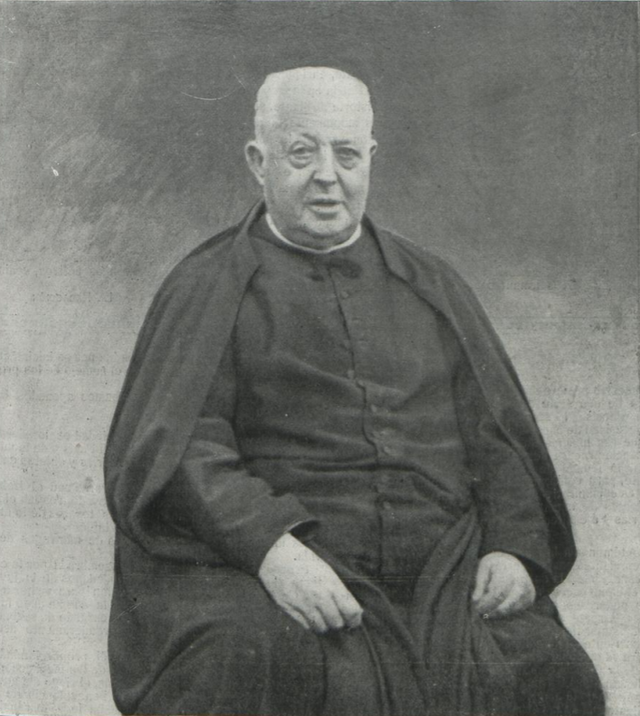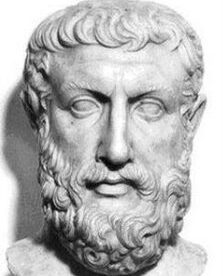
Available at TAN Books, St. Bonaventure Publications, and online at http://www.liberalismisasin.com/
Length of book: 198 pages
Liberalism, and by extension its child heresy of Modernism, runs rampant in our world today. Not only is there is a crisis within the civil societies of the nations that made up Christendom, but these errors have spread rapidly and easily, adapting their tenets even to infidel nations. It is gotten to the sad point that many so-called “conservatives”, who ought to completely repudiate Liberalism in all its forms, only seem to concern themselves with conserving the previous phase of this noxious system!
Well did Fr. Salvany write of how the Liberalism of his time had, by the abominable French Revolution, clearly shown itself to be born from the father of lies who was a “murderer from the beginning” (John 8:44). Yet, observe how well this particular example (one of many) applies to our age:1
The veil of hypocrisy and pietism which some of its panegyrists first threw around it has been stripped off. The halo in which it was first depicted has shown itself to be, not the soft light of heaven, but the lurid glare of Hell. It has gathered under its banner all the dregs of society, wherever corruption was its precursor and promoter.
(73)
Hence, the problems discussed in this book are actually more relevant than the time it was written in, because the Liberals have cemented their ideological dominance over society. With this hegemony, they have increasingly become more transparent in their profession of placing “Man” over God, since they have nothing to fear from a mostly de-Christianized public opinion.
In so asserting themselves, they have made their folly open to all who have eyes to see and ears to hear. Let us examine in brief what Fr. Salvany has to say of Liberalism and dogma:
It knows no dogma except the dogma of self-assertion. Hence it is heresy fundamental and radical, the rebellion of the human intellect against God.
(15)
Does this not explain the countless hypocrisies one can spot within Leftist narratives and talking points? Since the whole ideology is based upon opinion, and the exhalation of opinion to dogma, it is bound to contradict itself because one Leftist’s self-assertion will eventually collide with the self-assertion of another. Their beliefs are constructed on foundations of sand, to be washed away by the next phase of the Revolution.
Many cases of this present themselves to an observer of what passes as “culture” in our age. Famously, the apostate author J.K. Rowling has made herself an enemy of the transvestite death cult and thus has committed an offense worthy of “cancellation”—excommunication according to Liberal standards. It is her firm commitment to be an authentic “radical feminist” (yesterday’s revolutionary) that has informed her stance. She understands that there is no real way that one can claim women have been and are “oppressed” by men, if one cannot even define what a woman is! Yet, it was the very errors of her own ideology that paved the way for the beliefs of her persecutors to gain acceptance. Radical feminism, as with “feminism” in general, by propagating the concept that women ought to take on the roles and mannerisms of men to the abandonment of their traditional God-given roles, and that men should do in like manner, has created the kind of confusion that the transvestites have gleefully preyed upon.
Observe also the practically dogmatic belief of Liberals in the concept of so-called “human rights”. Now, since these persons are mostly godless individuals, why do they seem to assert this concept of “human rights”, as if it were a perennial truth? Why do they see opposition to these so-called rights as metaphysically evil, and support of these rights metaphysically good? After all, do they not profess that in matters of morality that things are relative, and therefore mutable?
Moreover, by what authority do these souls claim these rights? Mere men, governments, even the United Nations? To this, I answer this appeal with another question: what became of the cults of the Pharaohs and the Caesars?
Perhaps after being pressed with questions such as these, they would admit that fallible men simply made up this concept of “human rights”, and that such rights are therefore not really inviolable. But to find a Liberal honest enough to admit that these principles are built on fables would be incredibly difficult—one would sooner discover the fabled unicorn than one with intellectual consistency!
And it is no real secret as to why this is, as Fr. Salvany explains:
Very often corruption of heart is a consequence of errors of the intellect, but more frequently still, errors of the intellect follow the corruption of the heart.
(121)
Liberalism in the intellectual order is license in the moral order.
(125)
One of the many fruits of an immoral life is a dim intellect, and anyone who has discussed serious subjects such as religion and philosophy with a Liberal knows this. It is because the Liberal creed permits, and even encourages immorality that its adherents will so vehemently defend its tenets, no matter how absurd they are.
But the most injurious of the Liberals are the ones who have the name of being alive, but are inwardly dead (Apocalypse 3:1). Appropriately, Fr. Salvany dedicates most of the pages of this work to attacking their errors and their methods of attempting to reconcile the irreconcilable. This exposé is not only a fascinating glimpse into the earlier stages of our present battle, but it is also quite analogous to our situation since many of the errors involved have remained the same (“religious liberty”, the “need” for the Church to adapt to modernity, etc).
Fittingly, Catholics of our age ought to take in mind the words of Fr. Salvany under the chapters entitled, “Charity and Liberalism” as well as “Polemical Charity and Liberalism”. Many of us, having been formed by a culture wherein being “nice” was preferred to true charity may retain a disdain for what may appear as “speaking ill” of others, but what is in fact plainly speaking the truth.
Hence Fr. Salvany writes:
If it is shown that in displeasing or offending our neighbor we act for his good, it is evident that we love him, even when opposing or crossing him. The physician cauterizing his patient or cutting off his gangrened limb may nonetheless love him. When we correct the wicked by restraining or punishing them, we do nonetheless love them. This is charity—and perfect charity.
(93)
How different this is from the opinions of the Modernist! Because these deluded souls believe that “the truth requires a great number of defenders and friends” (147) they are more than willing to compromise the teachings of Our Holy Faith for the sake of the crowd. So abominable is this act, that not even those who they wish to retain and recruit into the ranks of the Church respect it! As was witnessed during the time of the pseudo-council, that rancid attempt at “updating” the Church drove away many Catholics into infidelity and those on the outside remained quite comfortable where they were.
Concerning how Catholics may address them that “call evil good and good evil” (Isaias 5:20), this wise author writes:
Christian oratory of all ages has ever employed against impiety the most vigorous and emphatic rhetoric in the arsenal of human speech. In the writings of the great athletes of Christianity, the usage of irony, imprecation, execration and of the most crushing epithets is continual. Hence the only law is the opportunity and the truth.
(98)
When one reads at least some of the examples in support of this claim, one finds their eyes truly opened:
The supposed violence of modern Ultramontane journalism not only falls short of Liberal journalism, but is amply justified by every page of the works of our great Catholic polemists of other epochs. This is easily verified. St. John the Baptist calls the pharisees a “race of vipers”; Jesus Christ, Our Divine Saviour, hurls at them the epithets “hypocrites, whitened sepulchres, a perverse and adulterous generation,” without thinking for this reason that He sullies the sanctity of His benevolent speech. St. Paul criticizes the schismatic Cretians as “always liars, evil beasts, slothful bellies.” The same Apostle calls Elymas the magician a “seducer, full of guile and deceit, a child of the devil, an enemy of all justice.”
…
What shall we say of St. John Chrysostom? Is his famous invective against Eutropius not comparable, in its personal and aggressive character, to the cruel invectives of Cicero against Catiline and against Verres! The gentle St. Bernard did not honey his words when he attacked the enemies of the Faith. Addressing Arnold of Brescia, the great Liberal agitator of his times, he calls him in all his letters, “seducer, vase of injuries, scorpion, cruel wolf.”
(98-100)
Thus, there is much room today for writers and creators of online media to continue this great tradition of Catholic oratory. In fact, the evils of our age are so great that the duty to speak out so boldly against them practically imposes itself on those who have the talent to do so. After all, if we do not drink this chalice, who will?
It follows that this book not only provides an excellent analysis of this heretical system, but that it also includes helpful advice in how to combat Liberalism and how to keep the Faith amid a society drowned in these horrid errors. Thus its author avoids the error of some who focus so narrowly on the problems of our age that they themselves (along with those who follow them) lead souls into despair. One especially lofty remedy Fr. Salvany recommends is that of authentic and courageous Catholic action:
If Catholics only understood what a brilliant secular apostolate they could exercise by being open, straightforward, uncompromising practical Catholics, in word and deed, Liberalism and heresy would die a quick death.
(130)
Therefore, let us strive to form such good associations among our fellow faithful Catholics, that we may both strengthen each other in the household of the Faith and work together for the restoration of the reign of Christ the King!
